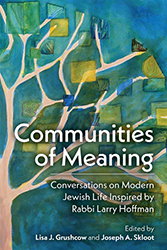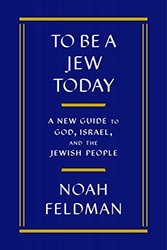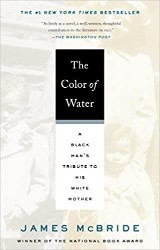The clever title of Dan Liberson’s and Lex Rofeberg’s compilation of transcripts from their well-known podcast, Judaism Unbound, acknowledges a creative tension in this work. The podcast seeks to highlight new voices engaged in creating a Judaism for the twenty-first century, and yet here the authors are giving us an “old” media bound book. Distinguishing between what is new in content and what is new in presentation is a challenge for the reader as well as for the editors and those they interview.
The underlying thesis of the editors and many interviewed is that we are reaching a new, third phase of Judaism. The first phase was Temple Judaism with its system of sacrifices, followed by Rabbinic Judaism after the destruction of the second temple. Post-Rabbinic Judaism is presented as a late-twentieth-century and twenty-first-century phenomenon.
In the first section of the book, the editors interview four contemporary writers whose work provides a theoretical undergirding for post-Rabbinic Judaism.
Benay Lappe argues that there are master stories that frame religious life which ultimately crash. When that crash occurs, religious leaders and their followers have three options: they can struggle to retain the master story and build walls around them; they can reject the master narrative and come up with something completely new; or they can create something new yet retain the relevant meaning of the earlier narrative. Lappe clearly favors the third option.
Barbara Thiede, a professor of Religion and an ordained Rabbi in the Jewish renewal movement, argues that the easy historical narrative of Temple Judaism leading into Rabbinic Judaism is a mythological history — that Judaism has always been rich with divergent views and practice, and that recognition of this will yield a rich and creative Judaism for the twenty-first century.
Rabbi Iriving “Yitz” Greenberg believes that we are already in the third era of Judaism. For Greenberg, the Holocaust is the central event that marks the third era. After the Shoah we have the paradox of God withdrawing from organized Judaism but becoming closer to all who seek him. Greenberg sees an opening-up of Judaism in the future that retains all of the rich teachings of the tradition.
Rabbi Irwin Kula defines religion as a “technology of human flourishing.” Using aspects of business theory and positive psychology, he presses for a way forward outside the structures and rubrics of organized Judaism.
The transcripts that follow are interviews with practitioners that each in different ways embody what the authors believe is a new post-Rabbinic Judaism. An impressive array of voices are here ranging from the founders of Safaria, to Moishe House, to Jews Without Walls, and many others.
Reading through these podcasts, one gets the sense of a rich and diverse body of practice and community. The anthology raises questions that it ultimately cannot answer. Are many of these organizations truly post-Rabbinic or more self-reflective critical outgrowths? Is thinking that what you are practicing or theorizing about indeed the future or only a momentary trend? Only time will tell.
Josh Hanft holds Advanced Degrees in English and Comparative Literature from Columbia University and curated the renowned reading series, Scribblers on the Roof, for over twenty years.





